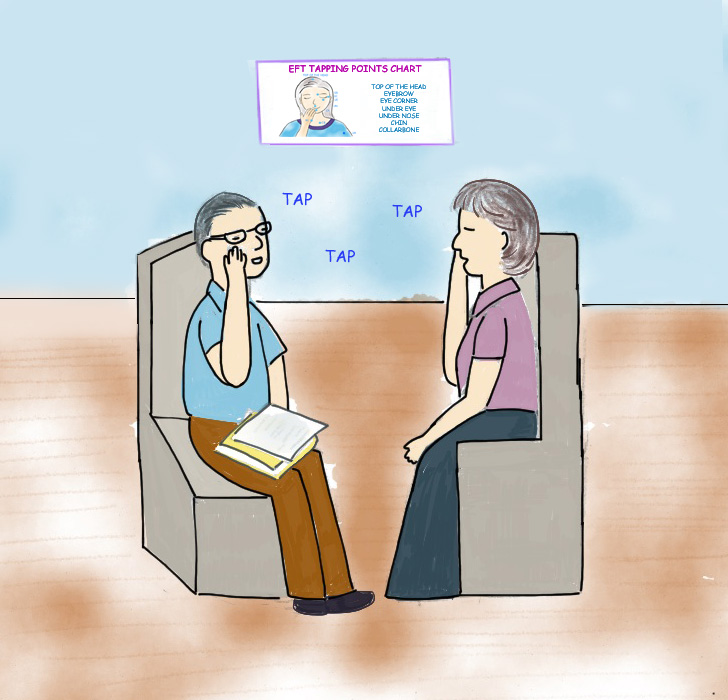
EFT as an assistive approach for MHPs
How can EFT help you in your practise if you are a mental health professional?EFT can be used as an individual as well as an assistive tool to help your clients with emotional and psychosomatic issues.
Here are just a few ways in which EFT can help your clients. I’m highlighting the most common benefits of using EFT with your clients and introducing it into your therapy practise.
1. Clients often get dysregulated while talking about their issues or processing their issues in the sessions. EFT helps in regulating your client’s nervous system during a therapy session. Tapping helps by sending deactivating signals to the limbic brain and that in turn calms the mind and body. Imagine how much more your clients will be able to process, if they were able to get back into a regulated state easily and gently during a session! It also helps them self-regulate in between sessions.
2. Handling difficult persistent negative feelings is easier with EFT. You can creatively combine any modality that you use with EFT to help your clients cope with and manage their difficult feelings, in the session as well as on their own in between sessions.
3. EFT can help in unearthing and transforming limiting beliefs. Limiting beliefs keep clients stuck in negative patterns and EFT utulizes a unique method to change these unhelpful beliefs – the unhelpful conclusions the clients have arrived at about themselves, the world and others.
4. Anxiety and stress are two of the most common presenting issues that clients bring to the table in our profession. EFT helps in easing the symptoms of GAD ( Generalized Anxiety Disorder). Clients can also learn the basics of EFT and apply it on themselves while they’re experiencing symptoms of anxiety such as heaviness in chest, increased heart rate, sweating etc. EFT is very effective for social anxiety as well.
5. Most clients have had some form of trauma in their lives. A specific technique in EFT is used for disarming troubling, stressful and traumatic memories and reducing the emotional charge associated with them. This is turn helps in improving their quality of life. There are many emotional and physical consequences of trauma, and working on adverse childhood experiences with EFT has proven to be very beneficial.
6. Goal setting & improving performance is another area where EFT can help either by itself or along with CBT and REBT.

7. Stress management is another area where EFT is very effective. I’ve conducted a lot of stress management classes, and tapping helps in reducing stress rather quickly. Research in EFT shows that tapping can reduce cortisol by approx 43% in a one hour tapping session.
8. EFT can complement the top-down approaches that most mental health professionals practise. EFT is a bottom-up approach which also incorporates cognitive shift and exposure. Since the body component is involved, EFT can help in decreasing body based anxiety and processing stored trauma responses in the body.
9. Talk therapies can sometimes be very overwhelming. I remember being very overwhelmed after a few of my talk therapy sessions. It felt like opening a tap and not closing it before the session ended. EFT can help in closing the tap by the end of each session. It has containment techniques than can effectively lessen the client’s overwhelm by the end of the session.
10. EFT can also help in positively resourcing a client at the start of the session.
EFT is a trauma informed approach and with increasing research backing its effectiveness, it’s time more MHPs considered learning and applying EFT. Since MHPs already have a solid background in psychology, in my opinion, they can master EFT skills easily.
